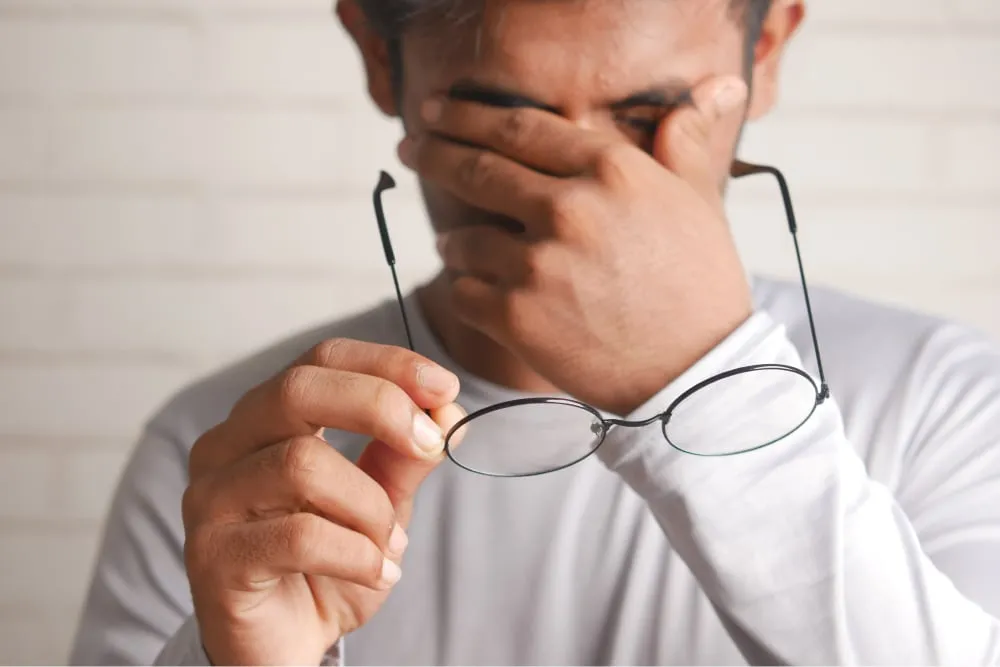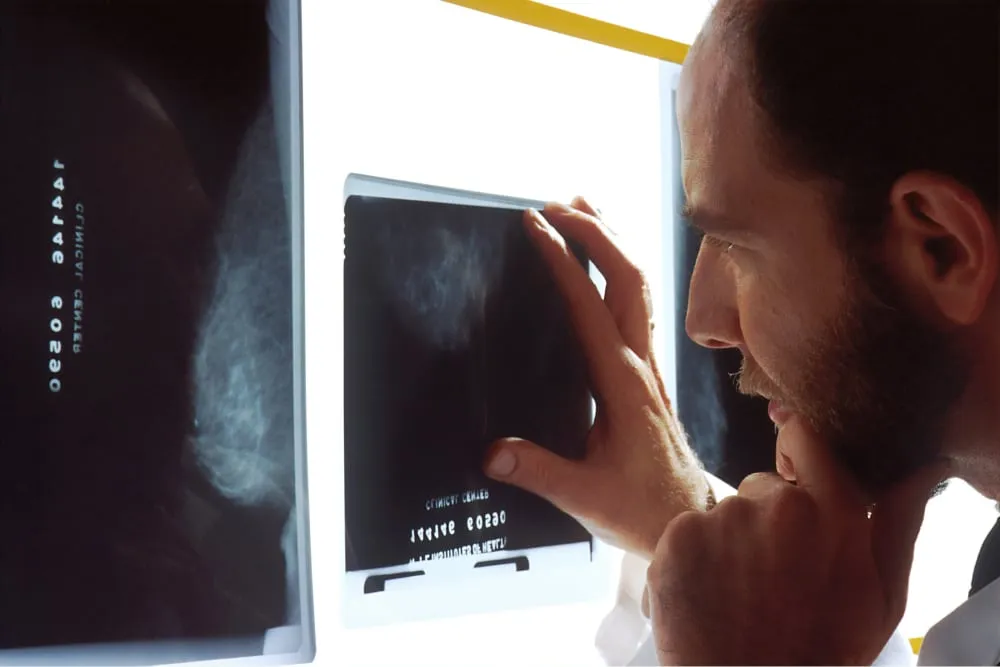How do I know if I have anorexia nervosa?
Anorexia nervosa is more than a desire to be thin or lose weight. It's an eating disorder defined by an intrusive preoccupation with body size and an intense fear of gaining weight, which leads to eating habits like extreme caloric restriction and a general lack of nourishment.2
According to the Diagnostic and Statistical Manual of Mental Health Disorders (DSM-5), the three diagnostic criteria of AN are:
1
- Body image dissatisfaction
- Intense weight anxiety
- Severe energy intake restriction relative to one's age, gender, and health
Those with this condition will often interfere with any attempts to gain weight, exhibit other behaviors in an attempt to lose weight, and may struggle with co-occurring mental health conditions, including anxiety and depressive disorders, obsessive-compulsive disorders, autism spectrum disorder, attention deficit hyperactivity disorder (ADHD), and substance abuse.4
Take our self-assessment questionnaire
Do I have anorexia if I eat?
While many people with AN limit their food intake, it's a misconception that all people with this condition refuse to eat at all.
Developing anorexia nervosa is still possible in people who eat. Similar behavior in those who eat more regularly could be the manifestation of certain related conditions or sub-types of anorexia nervosa, including:
A person may develop AAN if they don't have an outwardly recognizable lower body weight, but other anorexia nervosa symptoms are present.7
Certain types of anorexia nervosa mimic aspects of bulimia nervosa, including eating disorder behaviors like binge eating and purging.8
Do I have anorexia quiz
Anorexia nervosa is usually a combination of physical, psychological, and behavioral signs and symptoms. For this reason, it's important to have a medical professional evaluate you or your loved one for an official diagnosis.
But if you're wondering, "How do I know if I have anorexia?" taking a "Do I have anorexia quiz" or learning more about the signs and symptoms of anorexia nervosa may help you understand what's going on.
If you relate to some of the below complications, you should contact a medical professional.
Physical symptoms of anorexia nervosa
Having even one or two of the following physical symptoms could indicate the existence of an eating disorder like anorexia nervosa or another physical or mental health condition that may need attention from a professional.
Some physical signs of anorexia nervosa may include:
- Extreme weight loss
- Gastrointestinal pains
- Brittle or thin hair on the head or body
- Brittle nails
- Weight fluctuations
- Cold sensitivity
- Dehydration
- Dizziness
- Dry skin
- Fatigue
- Poor wound healing
- Swelling of arms or legs
- Insomnia or sleep problems
- Dental problems like cavities and tooth sensitivity
If you experience any of the signs or symptoms related to restrictive energy consumption or poor body image, you should consult a mental health professional immediately.
It is also important to note that AN may present “atypically” in the form of
atypical anorexia nervosa (AAN). While both conditions share similarities, people with AAN may not have a reduced body weight. So you should speak with your doctor if you suspect you have an eating disorder.
6
Psychological and behavioral symptoms of anorexia nervosa
Having even one or two of the following psychological and behavioral symptoms could indicate an eating disorder, like anorexia nervosa, or another physical or mental health condition that may need attention from a professional.
Psychological and behavioral symptoms of anorexia nervosa include the following:
3
- Eating in secret
- Refusing to eat certain foods
- Having a fear of certain food groups
- Constantly feeling full or fat
- Intense fears around gaining weight
- Obsessive interest in food, calories, and dieting
- Frequently commenting on weight, food, or diet
- Developing specific food rituals (e.g., eating foods in specific orders, rearranging foods on the plate, or excessive chewing)
- A sense of secrecy or paranoia about food
- Becoming preoccupied with food, diet, exercise, or appearance
- An excessive, rigid exercise regimen, regardless of weather, fatigue, illness, or injury
- Making excuses to avoid mealtimes or situations involving foods
- Experiencing anxiety, especially around social activities involving food
- Withdrawing from social activities or self-isolating
Consult a medical professional if you have any of the above symptoms and suspect you may have anorexia nervosa.
Getting help for anorexia nervosa at Within
Early treatment is essential if you or someone you know is experiencing signs or symptoms of anorexia nervosa. The first step in the recovery process is to find a trusted healthcare program to guide you through the treatment process.
Within offers compassionate, virtual care programs for people with eating disorders. Call our admissions team today to learn how to start treatment.





































































